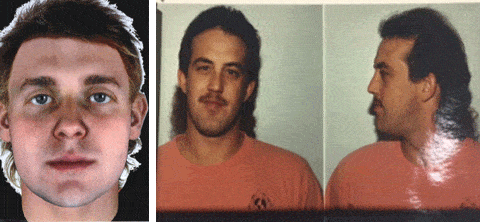Investigators were at a dead end, but the use of cutting-edge technology utilizing familial DNA led to a suspect and a guilty plea in the 2016 rape of a lifeguard at a deserted swimming pool in Alexandria, Virginia.
Jesse Bjerke pleaded guilty to six felonies, including rape, abduction with intent to defile and three counts of use of a firearm in the commission of a felony.
Alexandria Commonwealth’s Attorney Bryan Porter said police had gathered DNA evidence from the victim after she was attacked on a Saturday afternoon during the 2016 Labor Day weekend at a pool on South Pickett Street. However, the DNA didn’t match with anyone in law enforcement databases.
For the first time in Alexandria, police ran the DNA through public genealogical databases to try to develop a family tree based on known DNA profiles.
As the technology narrowed the search, police retrieved items Bjerke tossed in a dumpster and recovered a straw he had used in an Old Town restaurant.
After Bjerke was arrested, Porter said a buccal swab of Bjerke’s DNA matched the DNA found on the victim, with the possibility of error 1 in 7.2 billion.
“Without genetic genealogy, in this case, a violent rapist would not have been identified, and this particular defendant would currently be at liberty, capable to rape again with impunity whenever the urge arose again within him,” Porter said.
Bjerke’s attorneys had challenged the use of technology, saying the search based upon his DNA was unconstitutional without a warrant.
Alexandria Circuit Court Judge Lisa Kemler sided with prosecutors, who said the collection of DNA was similar to fingerprints.
The plea agreement will allow enough time for the defense to appeal the method in which DNA led to the identification of Bjerke as a suspect.
“The commonwealth understands that a balance between personal privacy and investigation must be struck,” Porter told reporters outside the courthouse. “That balance is struck when a rapist voluntarily abandons property, and a search warrant, based on probable cause, is used to confirm his identification as the offender.”
The victim, who lives in another country, watched the plea hearing by video link, and will provide a victim impact statement remotely during Bjerke’s March 19, 2020, sentencing.
The plea agreement also said prosecutors will not seek a life sentence for Bjerke, although Porter said the individual sentences could result in his spending the rest of his life in prison.
The agreement also stated Bjerke remains a suspect in an unsolved Fairfax County, Virginia, rape.
EDITOR’S NOTE: This story has been edited to take a reference to a specific family member.








